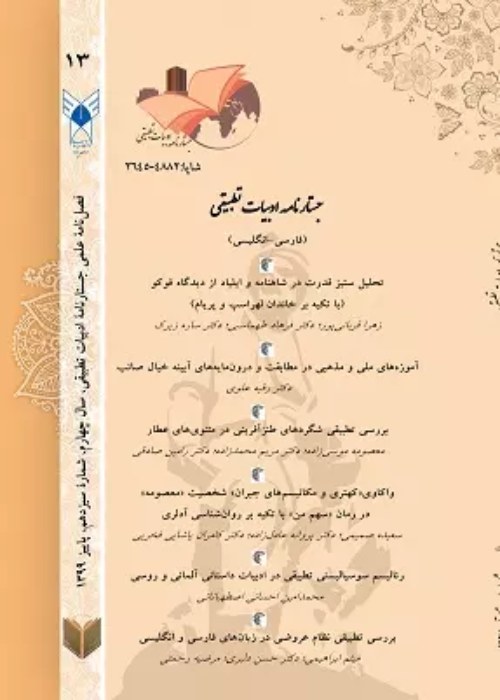Investigating and analyzing Dimensions of Mehdi Akhavan Sales's influence from the verses of the Holy Quran Relying on the intertextual theory of Gerard Genet
In recent years, in the field of literary criticism, a theory called intertextual criticism has become popular, according to which none of the texts have an independent identity and have been created under the direct or indirect influence of their previous works. The frameworks of intertextual critique were first explained by Julia Kristova, but culminated in Gerard Genet's views, so that today Genet's views are considered as a model in intertextual studies. He divides intertextuality into three categories, "explicit, implicit, and implicit," to which all texts fall. One of the sub-texts that poets pay attention to is religious characters, which in contemporary Persian literature, the Third Brotherhood is among the poets who have reflected religious issues in their poems. Citing the most important Islamic religious text, the Qur'an, he described some of his mentality and shared it with the audience. Therefore, in the present article, relying on descriptive-analytical method and citing library sources, the dimensions of the Third Brotherhood's influence on Quranic verses in four sections of content, lexical, structural and ritual stories have been studied and explored to answer these questions. It should be given that: a) The third Brotherhood has been influenced by the verses of the Qur'an? B) Which of the levels of the intertextual view has been used more in the poems of the Third Brotherhood? The foundations of Genet's intertextual theory have been used to avoid scatterbraining. The results of the research show that the poet has used the earlier text, namely the Qur'an, to explain the political, doctrinal, descriptive, protest-philosophical, moral and lyrical concepts.
- حق عضویت دریافتی صرف حمایت از نشریات عضو و نگهداری، تکمیل و توسعه مگیران میشود.
- پرداخت حق اشتراک و دانلود مقالات اجازه بازنشر آن در سایر رسانههای چاپی و دیجیتال را به کاربر نمیدهد.


